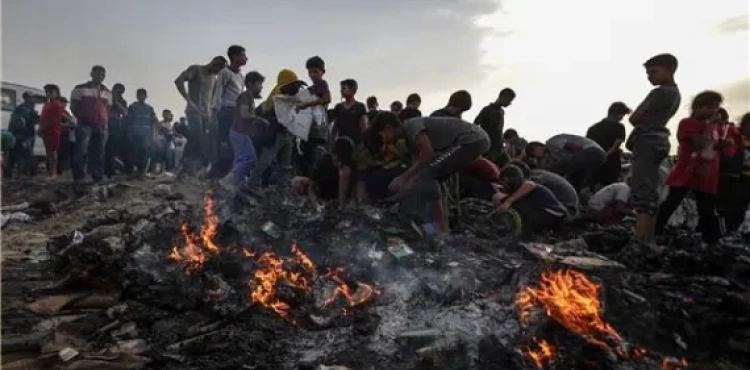The spokesperson for the Ministry of Health in Gaza, Khalil Al-Dakran, warned of a severe and unprecedented collapse in the health system at hospitals in the southern Gaza Strip, due to the ongoing massacres committed by the Israeli occupation forces against civilians, which have even targeted those seeking humanitarian aid.
Al-Dakran confirmed that the hospitals are completely filled with martyrs and the injured, and are unable to accommodate more casualties. He explained that their ability to provide medical services has deteriorated to critical levels, amid the continued blockade preventing the entry of essential medical supplies and equipment.
He added, "We are facing a catastrophic shortage of blood units, which has led to the death of several patients in the operating rooms due to the lack of the necessary quantities to save their lives." He pointed out that the available blood units in the sector do not even meet the minimum needs, especially with the large number of critical injuries arriving at the hospitals daily.
Al-Dakran called on international organizations to urgently intervene and provide blood units from outside the sector, emphasizing that the continuation of this shortage poses a direct threat to the lives of hundreds of injured individuals, especially in light of the occupation's ongoing ban on entering donations and medical supplies.
He concluded by saying, "We urge the world to take immediate action to save what remains of the health system in southern Gaza before we lose more lives due to this systematic siege and continuous crimes."
In a related development, the Palestinian Ministry of Health announced the arrival of 21 martyrs to hospitals in southern Gaza, along with 5 cases of clinical death and 30 critically injured patients, meaning the number of martyrs is expected to rise.
The ministry also stated that the emergency, surgical, and intensive care departments are experiencing severe overcrowding due to the large numbers of injured individuals, amid a severe shortage of surgical supplies and consumables for intensive care. The ministry added that the injuries in the operating rooms, intensive care units, and emergency departments urgently require blood units and their components, as there is a significant shortage of donations due to anemia and malnutrition.












